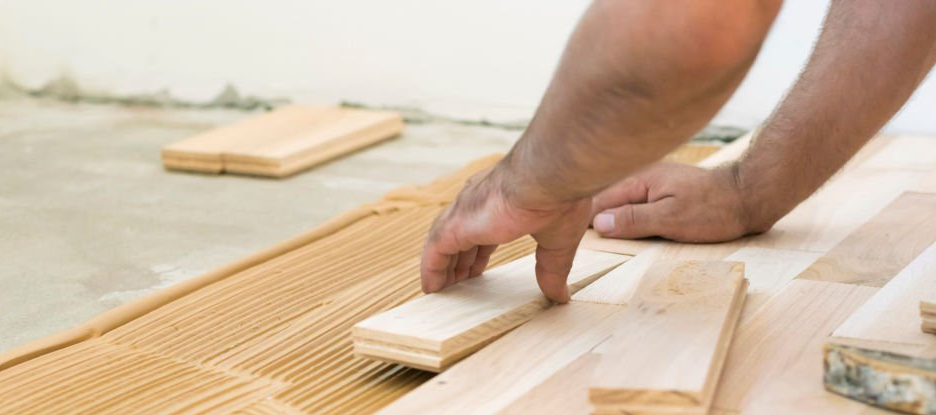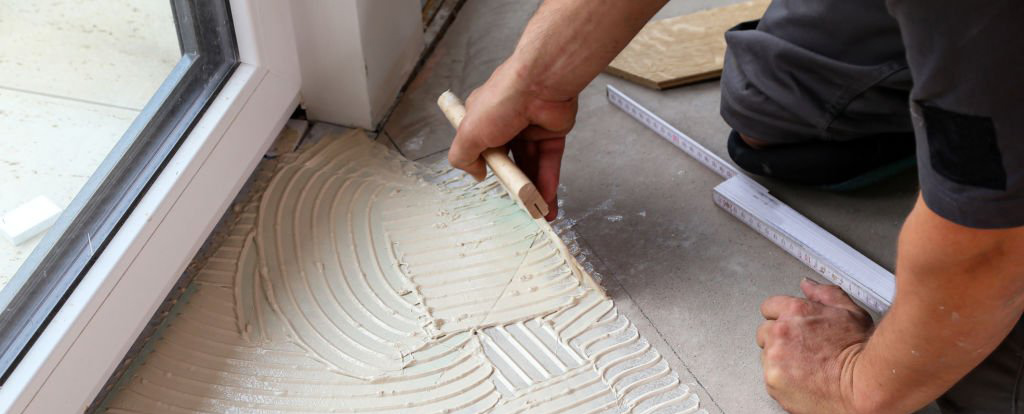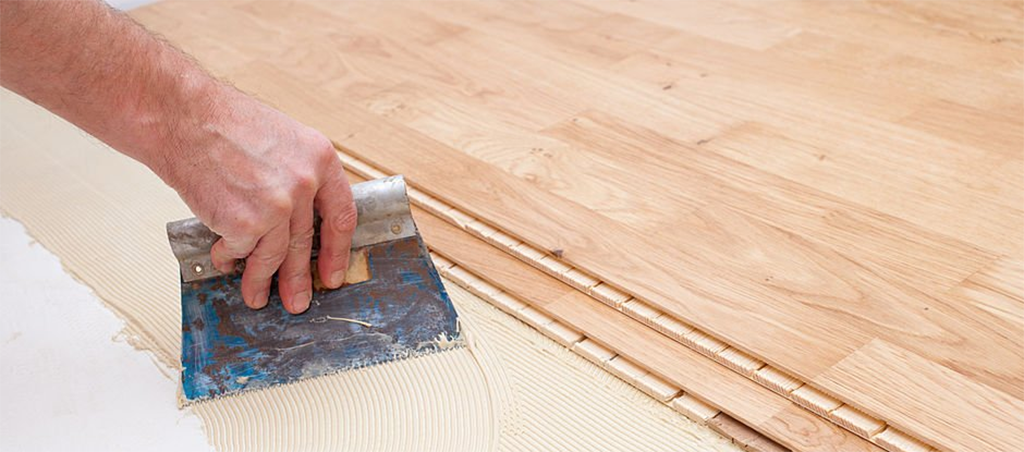Adhesives play a crucial role in flooring installation, particularly in the glue-down method. The quality of the adhesive used is vital to the floor’s longevity, as it directly impacts the floor’s performance and lifespan. Choosing the right adhesive is essential because different flooring materials require specific adhesion properties. Using an unsuitable adhesive can void the flooring’s warranty and compromise its performance.
How to choose the best adhesive
The type of flooring adhesive will vary depending on the subfloor, the installation conditions, and the type of wood flooring. An adhesive with a high degree of flexibility or elasticity is advised for solid wood flooring to allow the natural movements of the wood and avoid breaking. A less elastic glue is adequate for engineered wood flooring. Because of their versatility and wide variety of applications, urethane-based adhesives offer the highest level of installation security.
Polyurethane-based materials form strong and durable bonds between wood and the subfloor. They exhibit high peel strength and can withstand various stresses. Also, remain flexible even at low temperatures (down to -157°C) and offer good resistance to solvents and impact. This type of adhesive is sensitive to moisture. So, it’s a good choice when gluing down solid tropical hardwood species and solid bamboo. These woods are generally moisture-sensitive, and these adhesives provide effective bonding. Polyurethane-based adhesives are ideal for slab-on-grade installations. They offer remarkable flexibility and enhance the longevity of wood flooring. Also provides excellent resistance to abrasions and impacts. This durability ensures the wood flooring withstands wear and tear.
Urethane adhesive is significantly more environmentally benign. Solid floors are usually fastened with nails, however, engineered floors can be fastened with adhesive.
When it comes to wood adhesives, Bostik leads the competition hands down, but there are many other companies in the glue business, such as Saki and Mapei, to mention a few. On the day of installation, thorough cleanup is essential if you plan to utilize urethane adhesive. Mineral spirits are often used as clean-up products for this adhesive.

Types of Adhesive for Wood Flooring
Hardwood flooring adhesive plays a critical role in the installation process. When transitioning from your old flooring to a new solid hardwood floor, selecting the right adhesive is essential.
Oil-based adhesives are commonly used for wood flooring installations because they offer exceptional durability and form a strong barrier on the wood surface. Also protects against scratches, scuffs, and other damage. These adhesives accentuate the wood’s natural look. They provide a clear, glossy finish that highlights the wood grain.
Water-based adhesives emit fewer harmful fumes during application, improving indoor air quality. They are a greener adhesive option, making them better for the environment.
These adhesives have a rapid drying time, allowing for faster installation compared to solvent-based adhesives. This speed can be beneficial for an efficient project. They are also relatively easy to clean up with water. This minimizes the use of harsh chemicals and simplifies post-installation maintenance.


